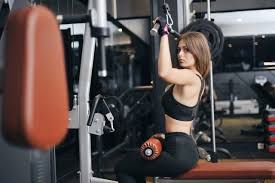hen you’re making any kind of change, it’s messy and uncertain; making mistakes with a large audience is trickier,” says Sophie Aris of her switch away from online bodybuilding and fitness. When the now 36-year-old joined the early cohort of fitness influencers posting about weightlifting and nutrition in 2015, she was working as a secondary school art teacher and had got into gym culture through an ex-boyfriend.

She posted morning and night. “I used to pull up at the school car park, in Oldham, at 7.30am with my gym selfie or picture of my Tupperware meals ready to post,” she says. Within a year, she had more than 100,000 followers on Instagram, weighed seven stone (44kg) and was a competitor in the bikini category of British and European bodybuilding competitions, winning gold.
“I was growing 8,000 followers a week, for months. I’d share my workout, my routine, my recipes, what I ate each day. I was a US size zero, I had abs, I was macro tracking, eating nuts, chicken and broccoli for meals and went to the gym twice a day, an hour at a time, seven days a week. I was supposedly in the best shape of my life.”


